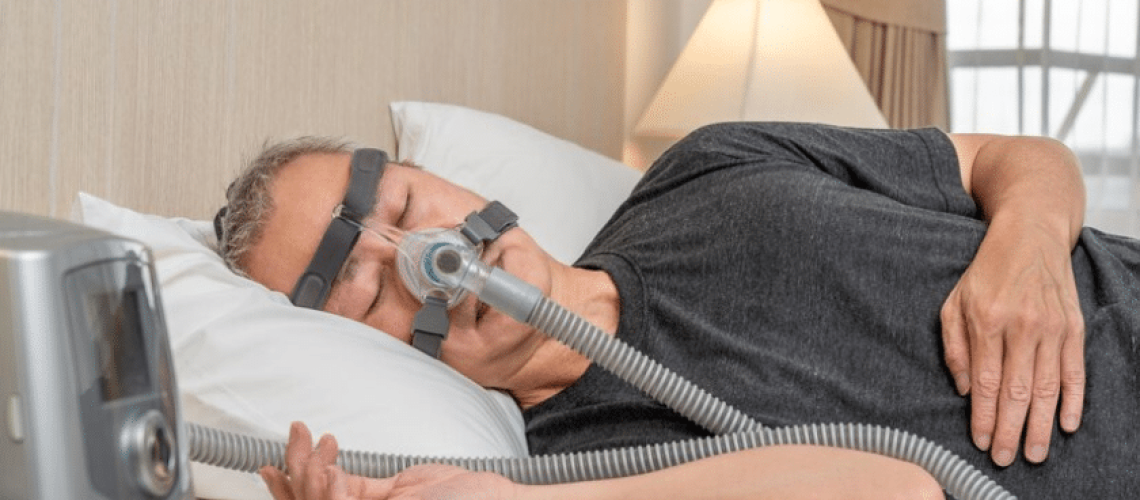Sleep apnea, a common yet potentially serious sleep disorder, disrupts breathing patterns during sleep, leading to fragmented rest and various health complications. While continuous positive airway pressure (CPAP) therapy remains the primary treatment, dental interventions have emerged as a complementary approach to managing this condition effectively. Let’s delve into how dental treatments can aid in mitigating sleep apnea symptoms, offering patients a pathway to better sleep and improved overall health.
The Link Between Dental Health and Sleep Apnea
Sleep apnea treatments often focus on addressing underlying anatomical issues that contribute to airway obstruction during sleep. Many cases of sleep apnea are associated with anatomical abnormalities such as a narrow palate, large tonsils, or a recessed jaw. These factors can constrict the airway, leading to breathing pauses and disrupted sleep patterns. Dental treatments aim to alleviate these issues by targeting oral structures that contribute to airway obstruction, thereby promoting better breathing and uninterrupted sleep cycles.
Exploring Dental Solutions for Sleep Apnea
Oral Appliance Therapy (OAT): One of the most common dental treatments for sleep apnea involves the use of oral appliances. These custom-fitted devices are designed to reposition the jaw and tongue to keep the airway open during sleep. By adjusting the position of the lower jaw or stabilizing the tongue, oral appliances help prevent airway collapse, reducing the frequency and severity of breathing pauses characteristic of sleep apnea.
Palatal Expanders: For individuals with a narrow palate contributing to airway constriction, palatal expanders offer a non-invasive solution to widen the upper jaw. By gradually expanding the palate over time, these devices create more space in the oral cavity, reducing airway resistance and improving airflow during sleep. Palatal expanders are particularly effective in pediatric cases of sleep-disordered breathing, where anatomical factors may contribute to obstructive sleep apnea.
Orthodontic Treatment: In some cases, orthodontic interventions may be recommended to address underlying structural issues affecting the airway. Orthodontic techniques such as braces or aligners can help align the teeth and jaws properly, optimizing the oral cavity’s dimensions and reducing the risk of airway obstruction during sleep. By correcting dental misalignments and malocclusions, orthodontic treatment can improve both oral function and sleep quality in individuals with sleep apnea.
Benefits of Dental Treatments for Sleep Apnea
- Non-Invasive: Unlike surgical interventions, dental treatments for sleep apnea are typically non-invasive and well-tolerated by patients. Custom-designed oral appliances and other devices can ensure a comfortable and secure fit, minimizing discomfort during sleep.
- Customizable: Dental solutions for sleep apnea are highly customizable to suit individual patient needs. Dentists work closely with patients to assess their specific anatomical issues and tailor treatment plans accordingly, ensuring optimal outcomes and improved sleep quality.
- Improved Compliance: While CPAP therapy remains effective for many individuals with sleep apnea, some patients may struggle with mask discomfort or find it challenging to adhere to nightly use. Dental treatments offer an alternative approach that may be more acceptable to patients, promoting better treatment compliance and long-term management of sleep apnea.
- Enhanced Quality of Life: By addressing sleep apnea symptoms and improving sleep quality, dental treatments can significantly enhance patients’ overall quality of life. Improved cognitive function, mood regulation, and cardiovascular health are associated with better sleep, contributing to a more fulfilling and vibrant lifestyle.
Consulting a Dentist in Oak Park
If you or a loved one is struggling with sleep apnea, exploring dental treatments may offer a valuable avenue for relief. A qualified dentist in Oak Park can assess your oral health and discuss personalized solutions tailored to your unique needs. From oral appliances to orthodontic interventions, dental treatments can play a pivotal role in managing sleep apnea and restoring restful sleep patterns.
Dental treatments provide a promising adjunctive approach to managing sleep apnea, addressing underlying anatomical factors that contribute to airway obstruction during sleep. By customizing treatment plans to suit individual patient needs, dentists can help alleviate sleep apnea symptoms and improve overall quality of life. If you’re seeking effective solutions for sleep apnea, consider consulting a dentist in Oak Park for expert guidance and personalized care. Your journey to better sleep and enhanced well-being begins with proactive dental intervention.

